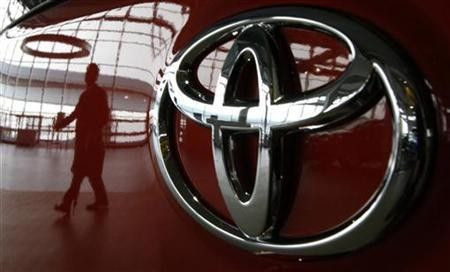Toyota, Plaintiffs' Lawyers Spar on Trial Plan

Toyota Motor Corp is battling with plaintiffs' lawyers over how many vehicle owners the company can interview ahead of a potential trial over sudden unintended acceleration claims.
Owners of the cars brought suit against Toyota, claiming their cars lost value because they were recalled for safety concerns. Lawyers for the complaining owners are seeking class-action status for the complaints.
The lawyers say Toyota wants too much latitude in deposing up to 250 so-called economic loss plaintiffs through 2013. The plaintiffs want to limit the depositions to 50 Toyota owners named in the lawsuit.
Toyota and attorneys for the owners presented arguments in court filings on Tuesday ahead of a hearing on September 12 before U.S. District Judge James Selna in Santa Ana, California.
The sheer scope of Toyota's proposed discovery…is nothing short of stunning, plaintiffs' attorneys wrote. Proceeding in this blunderbuss fashion is not an efficient mechanism for preparing for the class certifications proceedings.
Toyota said in a filing that plaintiffs' proposed plan to limit depositions is unfair. They cite a recent Supreme Court decision in a sex discrimination lawsuit against Wal-Mart that emphasizes the due process rights for corporate defendants in class action lawsuits.
Plaintiffs' proposal unfairly prevents Toyota from creating a full record to oppose class certification and thus infringes on Toyota's due process rights, company lawyers wrote.
Claims alleging economic loss are among hundreds of others against the Japanese automaker consolidated in litigation before Judge Selna's court. Plaintiffs allege they were harmed when Toyota failed to disclose or repair problems that made their cars surge forward unexpectedly. Other claims before the court include wrongful death and personal injury lawsuits.
The opposing sides differ on other issues, Tuesday's filings show.
Plaintiffs want a hearing and ruling on class certification -- that is, which plaintiffs can group together in a lawsuit or lawsuits -- by the end of 2012.
They also want an economic loss bellwether trial to follow the first bellwether, which will be a personal injury/wrongful death case. A bellwether case is one considered to be representative of others that can act as an indicator of how cases will proceed.
Toyota, on the other hand, wants an initial hearing on class certification in January 2013. The company also wants the second bellwether case to be a product liability lawsuit.
The plaintiffs' filing said Toyota's proposal puts the economic loss class actions not just on the 'back burner,' but off the stove completely ... The Court should reject Toyota's plan and its call for incessant delay.
In May the judge ruled that plaintiffs arguing they lost money because Toyota failed to disclose or repair problems that caused their cars to surge forward unexpectedly could move forward with their claims.
But in a setback for plaintiffs the following month, Selna ruled that Toyota owners outside California who seek to recover losses from their vehicles' value cannot pursue their claims under California law. California consumer protection laws are more favorable for plaintiffs than those of most other states.
The case is In re Toyota Motor Corp Unintended Acceleration Marketing, Sales Practices and Products Liability Litigation, U.S. District Court, Central District of California, No. 10-ml-02151.
© Copyright Thomson Reuters {{Year}}. All rights reserved.





















